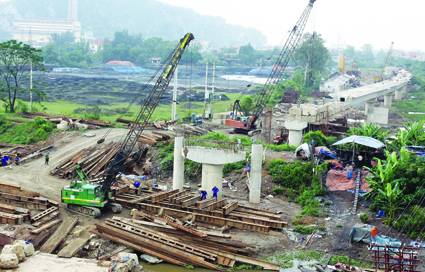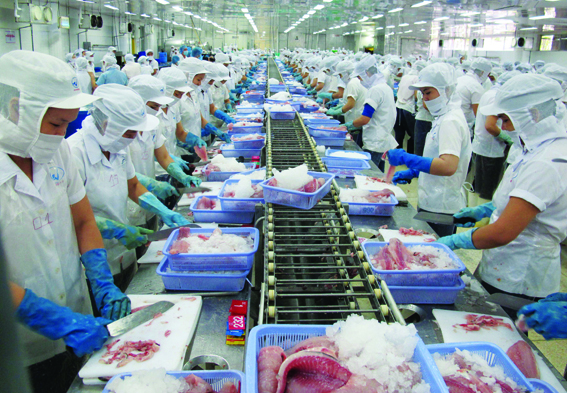The Customs Law (the Law), which was passed in June this year, aims to comprehensively renovate customs activities through modernization of customs management in accordance with international practices, ensure national interests and security, attract foreign investment and raise domestic and international competitiveness of enterprises.
Consisting of eight chapters and 104 articles, the Law provides the state management of customs with regard to goods which are imported, exported or transited, and means of transport of domestic and foreign organizations and individuals which are on exit or entry or in transit within the customs territory. The Law also governs the organization and operation of the customs service.
New contents of the Law focus on four issues: (1) Reforming customs procedures, modernizing customs management, incorporating international commitments in domestic law to meet integration requirements and creating favorable conditions for import-export activities; (2) Improving the effectiveness of customs management; (3) Revising laws related to the Law on Customs to ensure the consistency and feasibility of customs law; and (4) Strengthening the organizational system of the customs service.
Strongly reforming customs procedures
Regarding customs declaration, traditional and semi-electronic modes will be replaced by an e-customs mode. Under Article 29, customs declaration must be made electronically, except when customs declarants are allowed to use paper declaration forms under regulations of the Government.
To further simplify administrative procedures, the Law limits compulsory documents of customs dossiers. According to Article 24, only the customs declaration form is required for carrying out customs procedures. Other documents must be only submitted or produced in certain cases specified by the Ministry of Finance.
In case of application of the national single-window mechanism, specialized state management agencies will send import or export permits and notices of specialized inspection results or exemption from specialized inspection in electronic form via the integrated information system. Customs declarants will not have to submit these documents.
Under the Law, the average time spent on customs procedures will be shortened. Customs offices must examine dossiers within two working hours after receiving complete customs dossiers. The time limit for the physical inspection of goods is eight working hours, instead of the current two working days, after customs declarants produce goods to customs offices. For lots of goods in large quantities and of many types or in case the inspection is complicated, heads of customs offices that carry out customs procedures may decide to prolong the duration for physical inspection of goods to two days at most.
Customs offices will be also required to carry out customs procedures on public holidays and weekends as well as to work overtime to facilitate timely loading and unloading of imported and exported goods, exit and entry of passengers and means of transport or at the request of customs declarants and in suitability with practical conditions of customs operation areas.
Priority regime for enterprises
With a view to encouraging enterprises with good corporate governance, earning high export and import value and strictly observing the customs and tax laws, and creating favorable conditions for the implementation of agreements on mutual recognition of priority enterprises, the Law introduces a priority regime for enterprises. Accordingly, priority enterprises may enjoy exemption from examination of relevant documents in customs dossiers and physical inspection of goods in the course of carrying out customs procedures, except cases in which signs of law violation are detected or random inspection is needed to assess law compliance. The law also allows priority enterprises to carry out customs procedures with incomplete customs declarations or documents in substitution of customs declarations. Within 30 days from the date of registration of incomplete customs declarations or submission of documents in substitution of customs declarations, customs declarants must submit complete customs declarations and relevant documents in customs dossiers. These enterprises will be prioritized when carrying out tax procedures for goods in accordance with the tax laws.
An enterprise may enjoy the priority regime when fully meeting the conditions specified in Article 42. Priority enterprises in countries or territories that have signed with Vietnam agreements on mutual recognition of priority enterprises may apply the priority regime in accordance with the Law.
The General Director of Customs will consider, recognize, extend, suspend or stop the application of the priority regime to enterprises.
Effective on January 1 next year, the Law will supersede the 2001 Customs Law and its 2005 amendments.-

